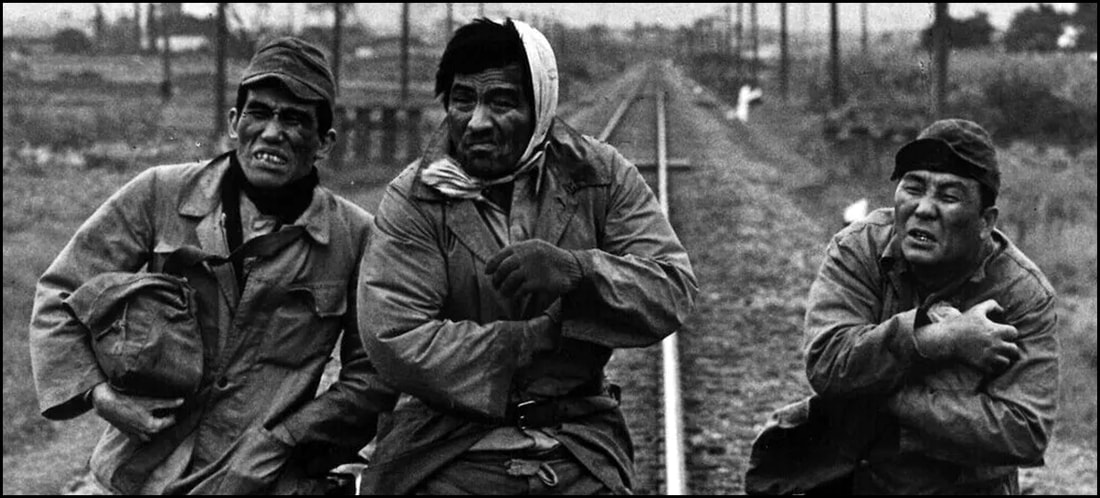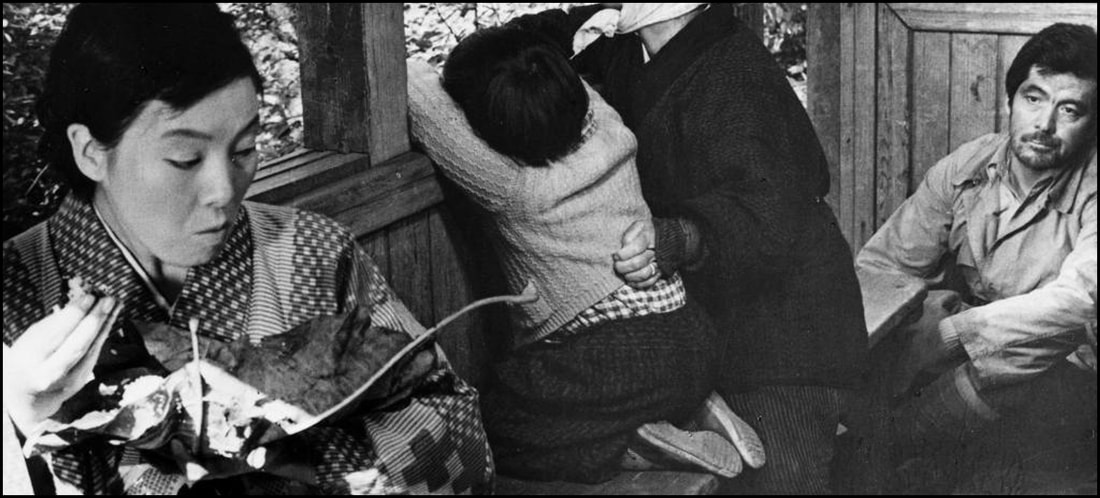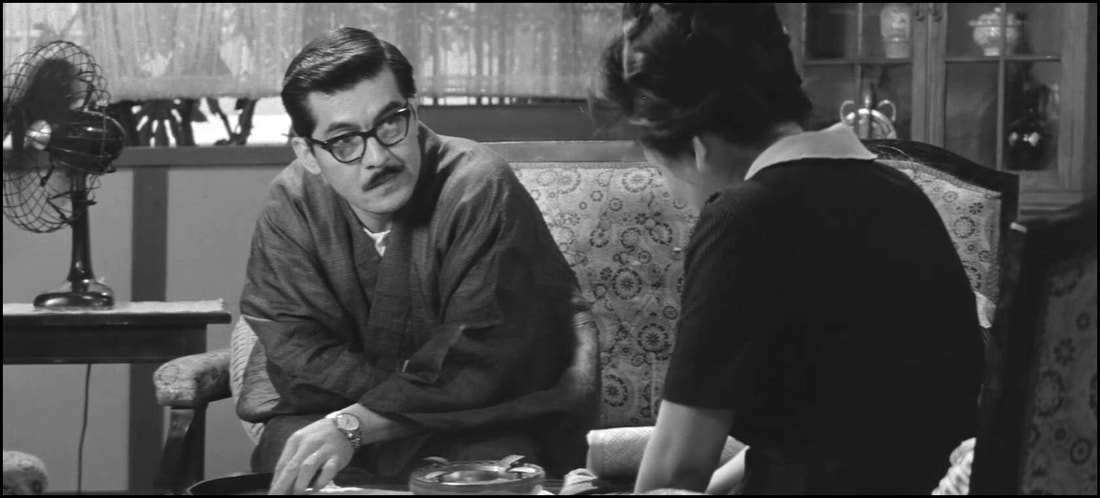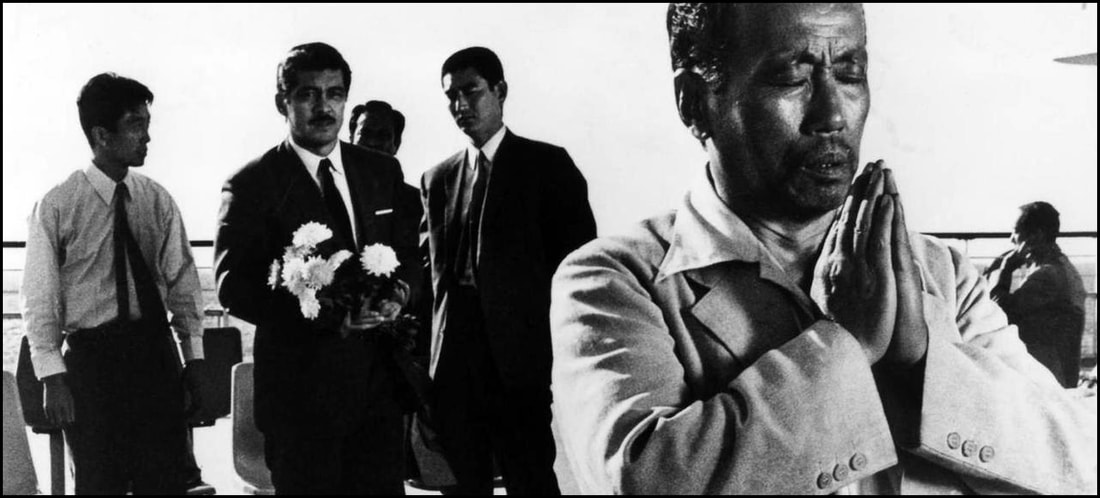I know, I know: that’s a pretty controversial statement for one who both dabbles in penning his own stories as well as makes it his day job to talk about both filmed and written stories. Perhaps it’s more accurate for me to say that I find ‘too much of the same thing’ to be a bit tedious; and that’s why I’m always striving – both as a critic and as an author – to spin something in a different light. There’s an inherent freshness to looking at the conventional unconventionally, and others far more insightful than I learned that lesson long ago.
In fact, I’ve long argued that’s why I do love foreign films so much.
Having grown up in the United States, I learned fairly early that so very much of what gets produced here runs through the mill that is the American studio system. Rather than foster creative potential and encourage it to find greater expression, studios tend to tamp it down, to force even square pegs into round holes, and – as a consequence – some truly original premises end up being smashed into something that resembles something else entirely. This is why Die Hard (1988) begat ‘Die Hard On A Bus’ (aka 1994’s Speed) or ‘Die Hard On A Plane’ (aka 1997’s Air Force One).
It isn’t so much that we copy so much as it is that the movers and the shakers only think it terms of what both worked before and made buckets of money.
But foreign films – at least, the ones I’ve spent time exploring to some degree – have more often than not been a breath of fresh air. I don’t doubt that they might suffer from their own worst derivative impulses, but my experiences with them have shown that these storytellers tend to have a greater track record of seeking out something a bit different, a bit more unique. It could be a subject matter or it could be just a whole different milieu than that to which I’m accustomed.
It's why I’m always thrilled to introduce a picture like Tomu Uchida’s A Fugitive From The Past to readers. It’s both familiar and unfamiliar to so much of what I’ve seen, crafted against the backdrop of history I’m completely unaware of. I may leave it a bit uncertain as to its killer’s true motivation, but I’ll likely spend a lifetime pondering if I would’ve done the same if such circumstances befell me.
From the product packaging:
“In 1947, a freak typhoon sends a passenger ferry running between Hokkaido and mainland Japan plunging to the ocean depths, with hundreds of lives lost. During the chaos, three men are witnessed fleeing a burning pawnshop in the Hokkaido port town of Iwanai. The police suspect theft and arson, and when Detective Yumisaka discovers the burned remains of a boat and the corpses of two men, he sets about tracking down the shadowy third figure …”
There’s a bit more, but if even that sounds a bit long let me assure you: A Fugitive From The Past is a three-hour crime epic that deserves your attention.
I know that many folks don’t like long films. I also know that many aren’t fond of subtitled pictures. While there are several exceptions I could point out that certainly show that both longer, subtitled flicks have been embraced, I’ll forego most of my arguments suggesting that this one may fall nicely into such good graces and leave it simply this way: if you like good characters in smartly constructed dramas, then this one is for you.
Naturally, this isn’t to say that Fugitive doesn’t feel a bit bloated in a few places. Director Tomu Uchida pads a few sequences in here with takes that are probably longer than necessary. In some cases, I think I got to the crux of what he was trying to accomplish in doing so; in a few others, I think the point was made and, yes, he could’ve moved on and along. So much of his tale is about how these intersecting characters deal with developments, and – think what you may – occasionally such characterization cannot be organically substantiated quickly. It’s both a procedural and a finely-tuned character study – fairly evenly divided between those two halves – and it necessarily stretches longer than most films.
Still, the structure of the film’s central mystery alone is greatest trick.
Like life, Fugitive shifts its main point-of-focus several times, so much so that it’s easy to question just who the story is and isn’t about. The truth there is that it’s more about the depicted history: events are seen differently by the various characters, and the true drama here is both how they react to it as well as how they choose to live their respective lives as a consequence of being changed by it. Each of us is never ‘one thing’ for life. We bob and change through the waves thrown at us. Uchida’s film does the same, proving that we’re equal parts effectors and effected by these movements … and a truer idea never existed.
That’s the thing about life: it’s never truly predictable … other than the whole we’re born, we die, and – in between – we pay taxes. Like the ocean (that’s seen throughout so much of the picture and rarely is it truly serene), there are high tides and there are low ones. There are turbulent waves and there are calm seas. We never can quite tell what we’d do until we find ourselves in the thick of it to truly know who we are, just how far we’ll go to both keep a secret and maintain our status quo, and in many ways that’s really all there is at the heart of Fugitive – folks who make fateful, life-altering decisions ‘in the moment’ and then have to figure out how to live with the aftermath. We’re always riding those waves … and some of us are better swimmers, sailors and – ahem – sinkers than others.
In this respect, Fugitive makes the most of three grand performances. Rentarô Mikuni shines as the man hellbent on starting over but yet can’t quite shake the curse of his secret past, no matter how hard he tries. Junzaburo Ban mystifies as the stalwart small-town police detective who can’t let the past go – the case that got away – so much so that it nearly destroys not only him but also his faithful, loving family. And Sachiko Hidari excels as the simple-minded prostitute so overcome with gratitude to the man who changed her life that it very well may inevitably cost her her own. Good drama makes the most of the collision of their varied trajectories, and Uchida’s film deliciously delivers the goods in heartbreaking fashion.
A Fugitive From The Past (1965) was produced by Toei Company and Toei Tokyo. DVD distribution (for this particular release) is being coordinated via the very reliable Arrow Video. As for the technical specifications? Though I’m no trained video expert, I thought the sights and sounds here were exceedingly well done: there are some sequences involving camera trickery that are meant to be part of the overall ‘experience,’ so don’t be alarmed. As for the special features? The disc comes with a wealth of interesting ‘professorial’ discussions that are billed as ‘scene specific commentaries,’ which is a bit inaccurate as each of these academics (for the most part) really discuss various theories involving the film as a whole (with an exception here and there). There is also an introduction to the film by writer and curator Jasper Sharp that delves a bit more (than necessary, I felt) into director Uchida’s library of pictures. Lastly, the disc boasts many of the usual extra – images, trailer, etc. – along with a collector’s booklet with associated essay. A very nice collection … as all of us should come to expect with the name of Arrow attached to this.
Highly Recommended.
Make no mistake: A Fugitive From The Past is a mystery, but it’s one with perhaps one of the more unconventional constructions ever. There’s no doubt who the guilty party is, but – come the ending – you’re left with one than a single ‘interpretation’ of just how some of the crimes were committed, leaving you to, perhaps, make up your own mind about just what went down when it did. Otherwise, the viewer is left with a pretty interesting police procedural surrounding the intersection of these relatable characters with each twist and turn proving (yet again) that no good deed goes unpunished.
In the interests of fairness, I’m pleased to disclose that the fine folks at Arrow Video provided me with a complimentary Blu-ray of A Fugitive From The Past (1965) by request for the expressed purposes of completing this review; and their contribution to me in no way, shape, or form influenced my opinion of it.
-- EZ





 RSS Feed
RSS Feed